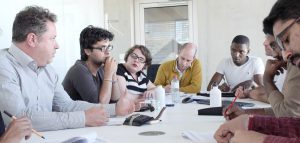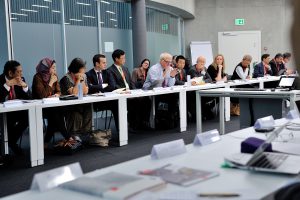
At the Graduate Institute multiple professors, researchers and students work on SDG 6. We offer an Executive Certificate and Master on Environmental Governance and Policy Making, in addition to academic courses. We also hold various events and have published multiple academic and policy-oriented articles on this topic. The Centre for International Environmental Studies serves as a hub of activity on this topic.


Accelerating achievement of the sustainable development goals

Europe’s Role in Strengthening Polio Resilience : Linking health systems and health security

Operationalizing the Notion of Ecosystem Approach in International Law in the Age of Planetary Boundaries

The Sardar Sarovar Dam: Drowning out citizens but who benefits?

Geneva Energy Conversations – Putting the genie back: Two degrees will be harder than we think

Climate Indicators and Sustainable Development: Demonstrating the Interconnections

Action Days for the SDGs – Environment and the Future of Partnerships

Tackling Water Scarcity in India Through Innovative Finance

Network embeddedness and the rate of water cooperation and conflict

Lead Environmental Change!

So fresh and so clean: urban community engagement to improve the sustainability of drainage infrastructure
Discover more SDGs
View more“Water and sanitation are at the very core of sustainable development, critical to the survival of people and the planet. Goal 6 not only addresses the issues relating to drinking water, sanitation and hygiene, but also the quality and sustainability of water resources worldwide” as put by the UN Sustainable Development Knowledge Platform. Read more about Goal 6